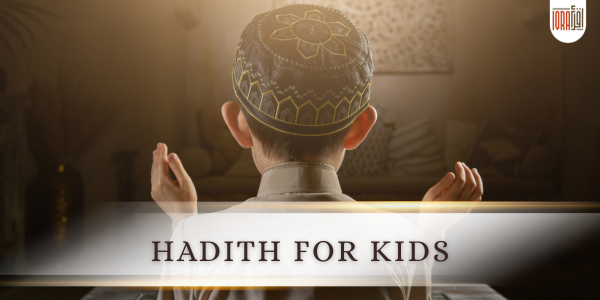In history, few figures inspire like David, the hero who famously defeated Goliath with a single stone.
But beyond his legendary feat, was David also a prophet? In this in-depth journey, we’ll explore David’s prophethood, his role in the Quran, and the legendary Battle with Goliath.
David’s Prophethood:
David, known as “Dawood” in Arabic, is indeed recognized as a prophet in Islamic tradition. His story is chronicled in both the Bible and the Quran, and his prophetic mission is a central aspect of his narrative.
In Surah Sad (38:20), the Quran mentions, “And We gave to David favor from Us. [We said], ‘O mountains, repeat [Our] praises with him, and the birds [as well].’ And We made pliable for him iron.”
This verse highlights God’s special favor bestowed upon David, including the ability to communicate with birds and even make iron pliable, emphasizing his status as a prophet. David’s prophethood is a testament to his piety, wisdom, and close connection with the divine.
David in the Quran:
The Quranic narrative of David, as presented in several surahs (chapters), provides valuable insights into his life and his relationship with God. One of the most notable stories is that of his confrontation with Goliath, which serves as a powerful testament to David’s unwavering faith and courage.
In Surah Sad (38:26-27), it is written, “And David became certain that We had tried him, and he asked forgiveness of his Lord and fell down bowing [in prostration] and turned in repentance [to Allah]. So, We forgave him that; and indeed, for him is nearness to Us and a good place of return.”
This passage illustrates David’s humility and his reliance on God, even in the face of formidable challenges. It also emphasizes God’s forgiveness and the special bond between David and the Almighty.
The Battle with Goliath:
The epic showdown between David and Goliath is a story of bravery and divine intervention. Goliath, a fearsome giant, challenged the Israelites, taunting them and striking fear into their hearts. In contrast, David, a young shepherd, stepped forward to face the giant armed with nothing more than his faith and a sling.
The Quran describes this remarkable event in Surah Sad (38:31-33), “And We strengthened his kingdom and gave him wisdom and discernment in speech. And has there come to you the news of the adversaries when they climbed over the wall of [his] prayer chamber – When they entered upon David and he was alarmed by them? They said, ‘Fear not. [We are] two adversaries, one of whom has wronged the other, so judge between us with truth and do not exceed [it] and guide us to the sound path.'”
In this encounter, David’s wisdom and righteous judgment shine through. He mediated between the two adversaries, ensuring justice was served. This exemplifies the qualities that made him a prophet, not just his military prowess.
David’s Humility as a Leader:
- Submission to Allah: David’s humility is most evident in his profound submission to God. David’s profound submission to God is evident in both the Bible and the Quran, where he portrays himself as a king who acknowledges that God grants him power and authority. He recognizes that he is merely a steward of the kingdom God has granted him by divine decree. This acknowledgment of Allah’s sovereignty serves as a testament to his humility as a leader
- Fair and Just Ruler:David, as a leader, embodies fairness and justice in his rule. He actively listens to the grievances of his people and ensures that he administers justice without favoritism. His commitment to upholding the principles of justice and equity reflects his humble approach to leadership, where he prioritizes the well-being of his subjects over personal gain.
- Approachability: David’s accessibility to his people is another aspect of his humility. Another dimension of David’s humility lies in his accessibility to his people. David portrays himself as a leader who listens to his subjects’ concerns, making him approachable and responsive to their needs.
- Recognition of Imperfection: Despite his remarkable qualities and achievements, David acknowledges his own imperfections and seeks forgiveness from God for his shortcomings. This acknowledgment of his human fallibility demonstrates his humility and reliance on divine guidance.
- Gratitude and Praise: Throughout his life, David offers heartfelt gratitude and praise to God for His blessings and guidance. This gratitude reflects his humility in recognizing the source of all blessings.
Conclusion:
In conclusion, David, known as Dawood in the Quran, was indeed a prophet. His story in the Quran highlights his prophethood and his unique connection with God. The Battle with Goliath, a defining moment in his life, exemplifies his unwavering faith and the divine support he received.
As we reflect on the life of David, we are reminded of the power of faith, courage, and righteousness. His legacy continues to inspire believers to this day.
Delve deeper into the rich history of prophets and their stories, consider enrolling in our courses at IQRA Network. Explore our History Curriculum to gain a comprehensive understanding of the prophets and their significance in Islamic tradition. To get started, sign up for our program.
For more insightful articles and resources, visit our website at IQRA Network.
Remember the words of the Quran, as exemplified by David’s story: “So be patient. Indeed, the promise of Allah is truth.” (Quran 30:60). Embrace the lessons from David’s life and his role as a prophet to strengthen your faith and understanding of Islam.
References: Unlocking the Wisdom of Prophet Sulaiman: A Journey through Islamic History





0 Comments
Oops comments are disabled